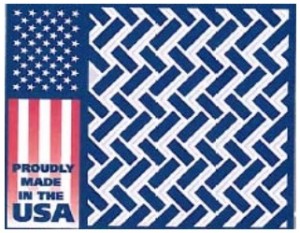October 24, 2016
 Last week, the Federal Trade Commission (the “FTC” or “Commission”) announced that Georgia-based glue manufacturer Chemence, Inc. (“Chemence”) has agreed to pay $220,000 to settle a lawsuit filed in connection with Chemence’s “Made in USA” claims.
Last week, the Federal Trade Commission (the “FTC” or “Commission”) announced that Georgia-based glue manufacturer Chemence, Inc. (“Chemence”) has agreed to pay $220,000 to settle a lawsuit filed in connection with Chemence’s “Made in USA” claims.
When can businesses say that their products are “Made in the USA”?
Chemence’s Glue Products and Made in USA Claims
Chemence, a corporation organized in Ohio, manufactures a number of cyanoacrylate glue products in Georgia, including its Kwik Fix, Hammer Tite and Krylex brands.
According to court records, certain Chemence product packaging and advertisements once included U.S. origin claims, such as “Proudly Made in the USA,” “Made in the USA” and “Made in USA.” However, approximately 55% of the cost of Chemence’s cyanoacrylate glue products was allegedly attributable to component chemicals that were imported from outside of the United States.
FTC Lawsuit and Settlement
In February 2016, the FTC sued Chemence in the U.S. District Court for the Northern District of Ohio (Case No. 1:16-cv-228). The Commission alleged that Chemence’s “Made in USA” product packaging and advertising deceived consumers as to the origin of its cyanoacrylate glue products in violation of the FTC Act.
On October 13, 2016, the Commission and Chemence reached an agreement settling the FTC’s deceptive domestic origin claims. Under the terms of the agreement, Chemence is forbidden from claiming that a product is made, manufactured, built and/or produced in the United States unless:
- “The final assembly or processing of the product occurs in the United States, all significant processing that goes into the product occurs in the United States, and all or virtually all ingredients or components of the product are made and sourced in the United States”; or
- “A clear and conspicuous qualification appears immediately adjacent to the representation that accurately conveys the extent to which the product contains foreign parts, ingredients, and/or processing.”
Chemence has also agreed to pay the Commission $220,000 to redress consumer injuries.
Is Your Product “Made in the USA”?
The Commission has made clear that U.S. origin claims are misleading for products made from a single imported component material (e.g., steel pipes, rubber balls, ground coffee and ceramic tiles). However, the FTC conducts a much more complex analysis for products made only partially of imported raw materials, considering factors such as:
- what percentage of the cost of the product is attributable to the raw material(s);
- how far removed the raw material(s) are from the finished product; and
- whether or not the raw material(s) are indigenous to or available in commercially significant quantities in the United States.
As the above-referenced case illustrates, manufacturers that make Made in USA claims in connection with products composed of imported raw materials may be at risk of substantial regulatory enforcement and other legal action. As such, product manufacturers should consult with experienced marketing counsel before including U.S. origin claims on their product packaging or in related marketing materials.
If you are interested in learning more about this topic, or if your products include “Made in USA” claims, please e-mail us at info@kleinmoynihan.com or call us at (212) 246-0900.
The material contained herein is provided for informational purposes only and is not legal advice, nor is it a substitute for obtaining legal advice from an attorney. Each situation is unique, and you should not act or rely on any information contained herein without seeking the advice of an experienced attorney.
Attorney Advertising
Related Blog Posts:
Avoid Deceptive Internet Advertising Claims
FTC Settles Deceptive Business Practices Lawsuit
FTC Clamps Down on Nationwide Deceptive Marketing Campaign



